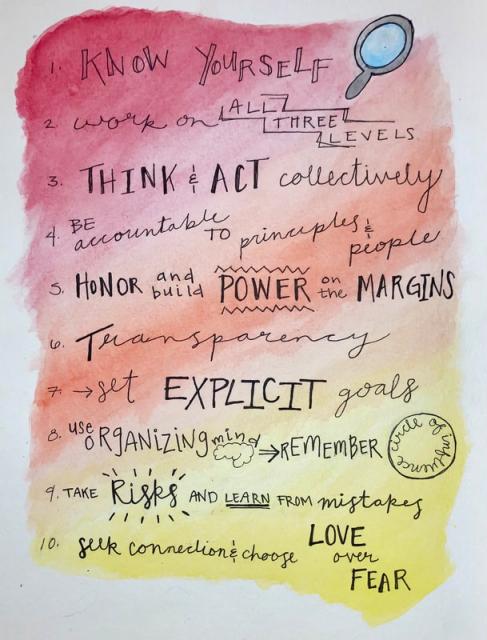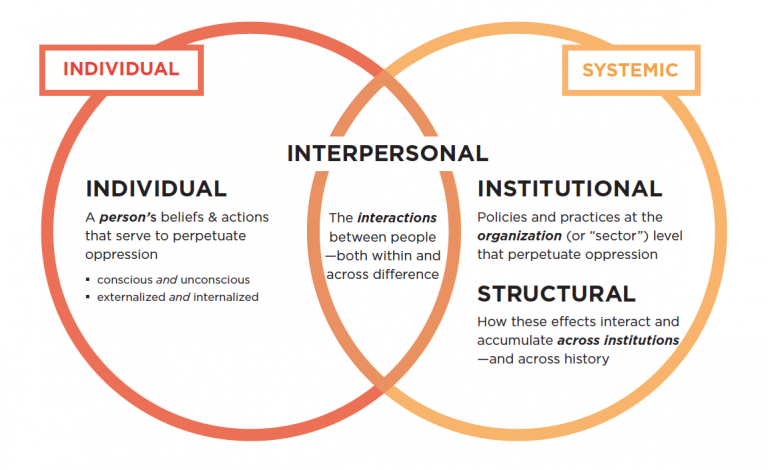Equity Evolution: CAN’s Growth Story
Vol. 1
July 12, 2021
Good Morning and Happy Tuesday Everyone!
Again, welcome to CAN’s journey to becoming a more just organization. In the opening post, we shared the arc of our process for change: Awareness and Education → Application and Accountability → Increased Ability and Sustainable Growth.
So, I thought I would spend some time talking about how we will frame that arc. To quote National Equity Project, “The lens of systemic oppression is a lens we intentionally employ to sharpen our focus on the ways in which any given form of oppression (race, gender, class, language, sexual orientation, etc) may be negatively impacting people’s ability to make progress on the things they care about and/or preventing individual or collective action toward the achievement of a particular goal.”
Understanding the individual to the systemic, is how each of our posts will be held. Each blogger/guest will speak to an individual, interpersonal, institutional, and/or structural construct that they are choosing to explore, interrogate, and live through, to come out on the other side. Our hope is by holding our conversations in this way, we will support everyone in building or honing their own ability to understand the complexity of how oppression manifests itself in our everyday lives and how we can seek liberation anyway.
My specific contribution to this conversation will be my continued exploration of racism as the foundational oppression that I experience in my daily existence. I will share how I recognize and counter it with truth and compassion, for myself and for others. Most of my conversations will be grounded in the racial equity principles I was exposed to in a Dismantling Racism learning community years ago; and how I have interpreted and applied these to how I, simply put, show up in the world. Now to be clear, that does not mean I will not speak on other forms of oppression. I will. And, I will always acknowledge the white (and other imperialist) supremacy culture characteristics I am seeing and experiencing, but the majority of my writings in this series will be how I engage the antidote/anecdote. As much as I understand we have to stop oppressive systems, I also believe we have to build the liberatory truth we want to experience. And that is done as the collective. We are the collective. We will be the change we want to see.
As always, your partner in this work,
Tiffany Gipson



